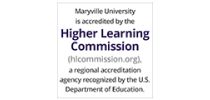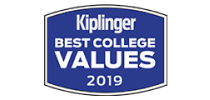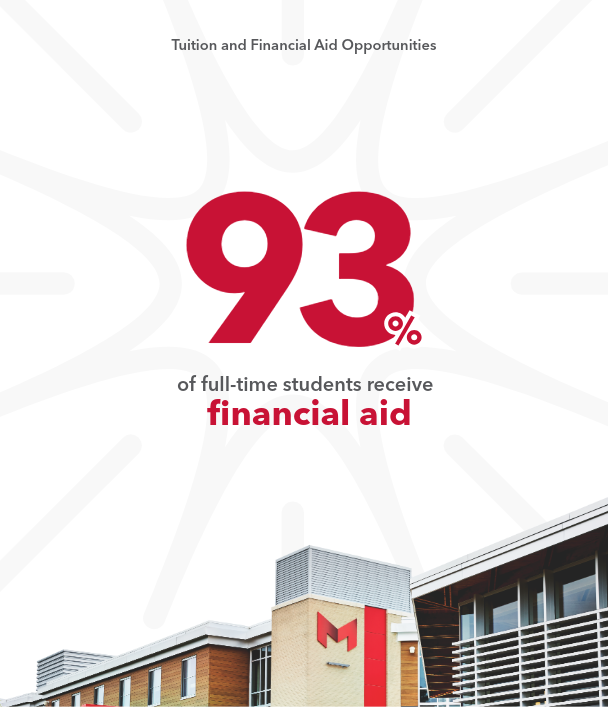BSN to DNP Online Programs
Overview

Why choose Maryville’s accredited online BSN-DNP programs?
- Access coursework 100% online with no campus visits required.
- Apply with no GMAT, GRE, or statistics needed.
- Earn your DNP in as few as 40 months.
- Choose from 5 concentrations.
- Complete clinicals locally in your preferred setting.
- Enjoy no waiting list once you’re accepted.

Are you ready to take the next step in your nursing career?
Maryville University’s accelerated online BSN to DNP programs are for experienced nurses who want to prepare to advance their careers by earning one of the highest credentials in nursing practice education.
Our streamlined curriculum is deeply focused on the scientific underpinnings of nursing, healthcare policy, and organizational management. With five specializations to choose from, you can make a difference wherever your interests lie.

Our online BSN to DNP graduates:
- Apply evidence-based research to improve the quality of patient care at the bedside and beyond
- Advocate for patient safety at all points of contact, from admission through discharge
- Lead projects that help define the future of nursing within your organization
- Prepare for executive or policy-setting roles as high-level decision-makers
- Educate other nursing professionals who are also ready to move ahead with their careers

Why choose our online BSN to DNP program?
Hear our professors and education staff discuss what makes Maryville’s online nursing programs so special.

You can learn to lead in healthcare
That’s why our online BSN to DNP programs are focused on empowering experienced nurses like you to rise to leadership roles at the highest levels in healthcare.

How quickly can you earn your DNP?
You’ve already proved your initiative by earning your BSN degree. Our accelerated BSN to DNP online programs are more than just the next step. They’re a leap forward — helping you prepare for your future as you learn to thrive in nursing leadership.
Skip the MSN and fast-track your education to one of the highest credentials in nursing with a Doctor of Nursing Practice from Maryville University.

Benefits of the online BSN to DNP programs:
- Graduate from a program accredited by the Commission on Collegiate Nursing Education (CCNE).
- Save time and money — skip the MSN and go straight to your DNP.
- Enjoy a flexible and convenient 24/7 online learning model.
- Explore important topics that can help pave the way to a better future.
- Take the opportunity to conduct research via clinical inquiry courses.
- Learn from an expert faculty of nursing leaders who openly share their experiences and insights.





Important dates for 2026
Program details

Choose your BSN to DNP concentration
Our BSN to DNP online degree offers five concentrations to help you focus your leadership perspective. Concentrate your knowledge and skills in your area of interest:

BSN to DNP: A deeper look
Our online BSN to DNP program provides a clear path for you to earn your DNP while completing the necessary credits to sit for the NP credentialing examination and achieve NP certification.
The program includes comprehensive coursework designed to prepare you for NP certification in one of five high-demand advanced practice areas. With your DNP, you’ll have the opportunity to expand your clinical expertise, enhance your nursing practice, and pursue roles in administration, policy, leadership, or education.
This program is designed to equip you with the knowledge and skills needed for advanced nursing practice and broader healthcare impact.

Adult-gerontology acute care nurse practitioner (AGACNP)

Adult-gerontology primary care nurse practitioner (AGPCNP)

Family nurse practitioner (FNP)

Pediatric (primary care) nurse practitioner (PNP)

Psychiatric mental health nurse practitioner (PMHNP)

DNP vs. PhD in Nursing
While a PhD focuses on preparing scholars for research and academic roles, a DNP can equip you to lead in clinical practice, improving healthcare outcomes and nursing leadership.
The DNP allows for a wide range of career paths in and adjacent to nursing, but if your goal is to advance in patient care as an advanced practice nurse, the DNP is the ideal path.

The field needs you now
As healthcare continues to evolve, the need for advanced practice nurses is rapidly increasing nationwide. Factors such as an aging population, a growing focus on preventive care, shortages of nurses and physicians, and the retirement of seasoned professionals are driving this demand.
The future of our healthcare system relies on skilled, dedicated leaders in nursing practice. Your online BSN to DNP degree can help prepare you to answer this call.

Dedicated student support from application through graduation
At Maryville, your success is our priority. That’s why we support you every step of the way in your nursing education, offering personalized assistance tailored to your needs. Access the tools and resources you need to thrive, including:
- Personalized student support advising
- 24/7 technical help desk
- Online study and tutoring services
- Access to the library and other learning tools
Learn more about our dedicated student support coaches here.
Careers

What can you do with your BSN-DNP?
Our online BSN to DNP is a leadership-focused degree designed for nurses interested in working in direct patient care or leading teams in clinical, nonclinical, educational, and administrative roles.
Graduates of our DNP programs are prepared to lead and make a meaningful impact at the top levels of healthcare. They also enjoy increased earning potential. According to data compiled by career resource PayScale, DNP-prepared nursing professionals and NPs earn an average of about $9,000 more per year than those who hold only a master’s degree.

Career prospect statistics for DNP-educated nurses and NPs
- According to the U.S. Bureau of Labor Statistics, job openings for advanced nursing roles like nurse practitioners (NPs) are expected to grow by 35% between 2024 and 2034.
- With a projected shortage of 86,000 primary and specialty physicians by 2036 according to the Association of American Medical Colleges, NPs and other highly skilled nursing professionals will play a vital role in meeting healthcare demands.
- Psychiatric, pediatric, family, and gerontological NPs are among the top 11 highest-paying nursing careers, as reported by career resource Indeed.
- While an MSN remains the standard educational requirement for NPs, organizations like the American Association of Colleges of Nursing (AACN) and the National Organization of Nurse Practitioner Faculties (NONPF) are advocating for the DNP to become the new standard.

Online BSN to DNP program graduates career outlook summary
Across many states, graduate-educated nurses and NPs are seeing increased autonomy and responsibilities. This shift stems from factors like evolving healthcare regulations, the growing emphasis on preventive care, and shortages of nurses, physicians, and other medical professionals.
Doctorate-level nurses, in particular, are well-positioned for advanced patient care roles and leadership opportunities due to their extensive education and training.

DNP-educated nursing professionals are industry difference-makers
The BSN to DNP is a highly adaptable credential that opens doors to opportunities in a wide range of settings. With trends like the rise of nurse-led clinics, the growing healthcare needs of an aging population, and increasingly complex systems, DNPs are well-positioned to find rewarding and impactful careers.
Education is another critical area where DNPs can make a difference. Complicating the global shortage of nursing professionals, the AACN reports that U.S. nursing schools have turned away more than 80,000 qualified applicants in recent years due to faculty shortages. DNP-educated professionals are uniquely equipped to address this gap and influence the future of nursing education.

What can online BSN to DNP graduates do?
Earning a DNP, a terminal nursing degree that represents one of the highest credentials in the field, can open doors to opportunities beyond greater autonomy, specialized practice, or higher salaries. Here are some ways DNP-trained nurses apply their advanced skills and expertise.
- Become a nurse educator at a school of nursing or within the hospital setting.
- Start your own private practice.
- Pursue an executive-level position in hospital administration.

What can online BSN to DNP graduates do?
- Pursue an executive-level position in hospital administration.
- Promote policy changes on the local, state, or national level.
- Advocate for patient rights in the delivery of safe, quality care.
- Conduct clinical research that can improve processes and procedures.
- Open an autonomous practice (24 states now permit those with a DNP to open their own clinics).

What careers can I pursue with my online BSN to DNP degree?
Find out more about DNP and DNP-NP careers here.

What careers can I pursue with my online BSN to DNP degree?
Nurses with a DNP may also explore other opportunities in the field, such as:
- Chief nurse anesthetist
- Chief nursing officer
- Director of nursing services
- Health policy analyst
- Hospital CEO
- Medical and health services manager
- Nursing manager or supervisor
- Nurse midwife
- Nursing professor

Where do BSN-DNP graduates find job opportunities?
With your online BSN to DNP, you can pursue work in a wide array of settings and offices within or adjacent to the healthcare system. These include the following.
- Behavioral health clinics
- Hospitals and clinics
- Long-term care facilities
- Nursing research facilities
- Pediatric clinics
- Rehabilitation facilities
- Retirement homes
- Specialty practice, such as cardiology or oncology

What is the typical salary for online DNP program graduates?
DNP-related careers are generally well-paid and fulfilling, with salaries for NPs and patient care roles often surpassing those in administrative or non-practice positions. For instance, the U.S. Bureau of Labor Statistics reported a median NP salary of around $129,000 in 2024.
As of 2025, data from PayScale shows that the average base salary for individuals with a DNP is approximately $115,000 per year, based on self-reported figures across various roles. Salaries for DNP holders can vary widely due to factors like specialization, experience, certifications, location, and education level.

What is the typical salary for online DNP program graduates?
Here are a few possibilities with associated average salaries.*
- Adult-gerontology nurse practitioner (acute or primary care): $108,000
- Family nurse practitioner (FNP): $105,000
- Pediatric nurse practitioner (PNP): $103,000
- Psychiatric mental health nurse practitioner (PMHNP): $123,000
- Chief nursing officer (CNO): $148,000
Earn an education with a strong ROI
We’re proud to be recognized among the leaders in social mobility in our region*:
- No. 1 in social mobility among private colleges and universities in the St. Louis area
- No. 1 in lowest average debt among regional private peers
- Top 3 in St. Louis for graduation rates and early-career earnings
These rankings serve as indicators of strong ROI for our graduates — meaning your Maryville education can help you start faster and go further.
Testimonials
“The way that the curriculum is set up at Maryville, each semester built upon the previous one, so we’re learning as we go. It’s not an overwhelming process. A lot of times, that’s much like our careers are in the healthcare field. We all have something new to learn, every single day.”
— Tiffany N., graduate, Doctor of Nursing Practice
“With the DNP, it allows me to become a faculty member, or it allows me to become more understanding of research … in a clinical setting, which is huge. It gave me the self-confidence I have been looking for my whole adult life.”
— Megan J., graduate, Doctor of Nursing Practice
Study with support and graduate with confidence
We offer the support, advising, and resources to help you earn your BSN to DNP on a schedule that works for your busy life.
Hear from 2025 grad Ashley Davis, a BSN-prepared nurse who earned her DNP while working and caring for her three kids. Faculty communication, personalized support, and a flexible online schedule helped her overcome obstacles and find success.
Curriculum
Want to advance your nursing career and make the biggest impact possible? If you have your Bachelor of Science in Nursing, then our online BSN to DNP programs are for you.
We designed our curriculum to help you become a researcher, practitioner, decision-maker, and leader at the highest levels of the nursing profession. With advanced courses in health promotion, pathophysiology, biostatistics, research, and systems leadership, our curriculum prepares you for success at the top of the nursing field.
The online BSN to DNP curriculum offers three entry points per year: Spring, summer, and fall. This blended degree features five distinct program concentrations and includes master’s and doctoral-level courses, all of which can be completed 100% online.
Depending on your concentration choice, the BSN to DNP program comprises between 74 and 77 credit hours. Most full-time BSN to DNP programs take three to four years to complete, while part-time programs may take anywhere from four to six years.
Students can complete an accelerated online BSN to DNP program in as few as 40 months at Maryville University. Factors that influence a student’s time to completion include the number of courses they take each semester and their chosen concentration.
Bachelor of Science in Nursing to Doctor of Nursing Practice (BSN to DNP) core courses
This course explores focused and comprehensive health assessments in a variety of settings and patients across the lifespan. This includes development of health promotion strategies and prioritization of care.
Prerequisite: Online - NURS 611, NURS 615 Corequisite: On Ground - NURS 615
This course focuses on the pharmacological foundation for safely prescribing medical regimens of illnesses for individuals across the lifespan. Also included are illness prevention, non-pharmacological and legal implications for prescriptive authority for the nurse practitioner.
Note: Selection of appropriate therapies, patient education and evaluation parameters are stressed.
This course is designed to introduce students to the purpose, content, and methods of epidemiology and biostatistics. Students will learn to evaluate and use output from statistical computing software.
Prerequisite: NURS 710
This course is designed to explore the phenomenon of interest related to the DNP scholarly project. Students will systematically develop a project protocol that is supported by the literature and submit it for department approval.
Course objectives:
- Develop a clinical question that guides the scholarly project.
- Read critically from professional nursing literature and other related disciplines to interpret, analyze and apply current research to improve practice.
- Apply a systematic approach to address clinical problems within healthcare organizations, including outcome measures and a sustainability plan to create meaningful changes in clinical outcomes.
- Develop a protocol and submit it to the DNP council for project approval.
- Develop the first chapter of the scholarly project that includes needed sections based on the selected DNP project format.
This course is designed to emphasize an objective approach to the integration and synthesis of knowledge. Manuscript preparation and practical use of evidence are incorporated to prepare students for the design of research proposals.
Prerequisite: NURS 700 and NURS 701
This course will allow the students to design an evidence-based project that will guide clinical practice. The feasibility of conducting this initiative will be explored. Potential funding sources and budget issues will be examined. Students will apply the elements of protection of human subjects and complete the Maryville IRB.
Prerequisite: NURS 700, NURS 701, NURS 702, and NURS 703
This course is designed to expand the students knowledge of clinical project data collection and analysis of data. Students will apply integrated research concepts pertaining to the clinical project. Utilization of various methods of data analysis and data management systems will be explored. Complete project data is needed prior to the start of this course.
Prerequisite: NURS 705 and NUS 705L
This course is designed to expand the students understanding of methods of dissemination in translational research. Variables that impact the analysis of data related to the scholarly project will be examined. Implications for patients, clinical practice and the healthcare systems will be explored and findings disseminated.
Prerequisite: NURS 706
This course is designed to provide an understanding of the measurement of phenomena as it relates to the research process. Procedures for selecting, applying, and interpreting the correct statistical application to a research problem will be presented with students processing the results.
Prerequisite: NURS 700
Bachelor of Nursing Practice to Doctor of Nursing Practice (BSN to DNP) NP concentration courses
BSN to DNP students complete the courses listed above plus 18-21 hours of concentration coursework.
The total number of credit hours for DNP-NP learners depends on the concentration you choose:
- AGACNP: 74 credit hours
- AGPCNP: 74 credit hours
- FNP: 74 credit hours
- PNP: 74 credit hours
- PMHNP: 77 credit hours
AGACNP concentration curriculum (18 credit hours)
This is the first didactic management course in the Adult Gerontology Acute Care Nurse Practitioner program. Focus is on individuals experiencing illness seen in the acute care setting. Students will analyze practice guidelines and develop differential diagnoses, implement clinical judgment and decision-making, as it relates to evidence based care management.
Prerequisite: NURS 611, NURS 612, and NURS 615
Corequisite: NURS 641 or NURS 641C
First practicum course in the Adult Gerontology Acute Care Nurse Practitioner (AGACNP) program. Students will apply and integrate concepts presented in NURS-640 with focus on applying knowledge and skills in acute care practice settings.
Prerequisite: NURS 611, NURS 612, and NURS 615
Corequisite: NURS 640
This course is the second didactic management course in the Adult Gerontology Acute Care Nurse Practitioner program. Students will continue to expand on knowledge, decision making and management of acute and emergent physiological alterations in health. Students will analyze practice guidelines and develop differential diagnoses, implement clinical judgment and decision-making, as it relates to evidence based care management.
Prerequisite: NURS 640 and NURS 641 or NURS 641C
Corequisite: NURS 643 or NURS 643C
This is the second practicum course in the Adult Gerontology Acute Care Nurse Practitioner (AGACNP) program. Students will apply and integrate concepts presented in the NURS 642 with focus on comprehensive health care to complex, acute and critically ill patients in a clinical, preceptored practicum experience.
Prerequisite: NURS 640 and NURS 641
Corequisite: NURS 642
This is the final didactic management course in the Adult Gerontology Acute Care Nurse Practitioner (AGACNP) program. Students will continue to analyze practice guidelines and develop differential diagnoses, implement clinical judgment and decision-making, as it relates to evidence based care management in complex symptomology.
Prerequisite: NURS 640, NURS 641 or NURS 641C, NURS 642 and NURS 643 or NURS 643C
Corequisite: NURS 645 or NURS 645C
This is the final practicum course in the Adult Gerontology Acute Care Nurse Practitioner (AGACNP) program. The student will apply and integrate concepts presented in the NURS-644 with focus on comprehensive health care to complex, acute and critically ill patients in a clinical, preceptored practicum experience.
Prerequisite: NURS 642 and NURS 643
Corequisite:NURS 644
AGPCNP concentration curriculum (18 credit hours)
This course covers the care of adults experiencing acute, chronic and complex health problems of select body systems in this first of two sequential courses. Current research based interventions are analyzed. Individual, family, and group counseling/education for patients and families are incorporated. Included is primary, secondary and tertiary disease prevention and management of complex symptomatology.
Prerequisite: NURS 611, NURS 612, and NURS 615
Corequisite: NURS 621 or NURS 621C
This course will cover the theoretical, clinical and role components of care by an advanced practice nurse and are integrated in a supervised clinical practicum.
Prerequisite: NURS 611, NURS 612, and NURS 615
Corequisite: NURS 620
This course covers the care of adults experiencing acute, chronic and complex health problems of select body systems in this second of two sequential courses. Current research based interventions are analyzed. Individual, family, and group counseling/education for patients and families are incorporated. Included is primary, secondary and tertiary disease prevention and management of complex symptomatology.
Prerequisite: NURS 620 and NURS 621 or NURS 621C
Corequisite: NURS 624 or NURS 624C
This course will cover the theoretical, clinical and role components of care by an advanced practice provider and are integrated in a supervised clinical practicum. Opportunity is provided for the assessment, management, and evaluation of adults with chronic and acute health problems in a primary care setting.
Prerequisite: NURS 620 and NURS 621
Corequisite: NURS 623
The care of adults experiencing acute, chronic, and complex health problems are studied in this course specifically for students in the adult-gerontology nurse practitioner program. The course expands on current research-based interventions unique to adults of varying ages, from wellness to illness. Individual, family, group counseling, and education for patients and families are incorporated. Included is primary, secondary, and tertiary disease prevention and management of complex symptomatology.
Prerequisites: NURS 620, NURS 621, NURS 623, and NURS 624
Corequisite: NURS 627C
This course will cover the theoretical, clinical, and role components of care by an advanced practice nurse are integrated in a supervised clinical practicum. Opportunity is provided for the assessment, management, and evaluation of adults with chronic and acute health problems in a primary care setting.
Prerequisites: NURS 620, NURS 621C, NURS 623, and NURS 624
Corequisite: NURS 626
FNP concentration curriculum (18 credit hours)
This course covers the care of adults experiencing acute, chronic and complex health problems of select body systems in this first of two sequential courses. Current research based interventions are analyzed. Individual, family, and group counseling/education for patients and families are incorporated. Included is primary, secondary and tertiary disease prevention and management of complex symptomatology.
Prerequisite: NURS 611, NURS 612, and NURS 615
Corequisite: NURS 621 or NURS 621C
This course will cover the theoretical, clinical and role components of care by an advanced practice nurse and are integrated in a supervised clinical practicum.
Prerequisite: NURS 611, NURS 612, and NURS 615
Corequisite: NURS 620
This course covers the care of adults experiencing acute, chronic and complex health problems of select body systems in this second of two sequential courses. Current research based interventions are analyzed. Individual, family, and group counseling/education for patients and families are incorporated. Included is primary, secondary and tertiary disease prevention and management of complex symptomatology.
Prerequisite: NURS 620 and NURS 621 or NURS 621C
Corequisite: NURS 624 or NURS 624C
This course will cover the theoretical, clinical and role components of care by an advanced practice provider and are integrated in a supervised clinical practicum. Opportunity is provided for the assessment, management, and evaluation of adults with chronic and acute health problems in a primary care setting.
Prerequisite: NURS 620 and NURS 621
Corequisite: NURS 623
This course prepares Family Nurse Practitioner students to develop expertise and assume responsibility for health promotion, maintenance, and management of chronic and acute illness of children and women’s health. Emphasis is placed on the child within the framework of the family.
Prerequisite: NURS 623 and NURS 624 or NURS 624C
Corequisite: NURS 630 or NURS 630C
This course provides the student with an opportunity to assume responsibility for the primary health care services of individuals and families under clinical supervision. The student is expected to assume increasing responsibility for planning and implementing therapeutic processes and for documenting and evaluating outcomes of care. The role of the FNP in health care promotion and management and collaboration with health professionals.
Prerequisite: NURS 623 and NURS 624
Corequisite: NURS 629
PNP concentration curriculum (18 credit hours)
This course focuses on growth and development and milestones of pediatric patients using theories and evidence based practice. Students will learn anticipatory guidance techniques, health promotion and illness prevention concepts within the pediatric population, incorporating individual, cultural, ethnic, and spiritual preferences.
Prerequisite: NURS 611, NURS 615 and NURS 612 (may also be taken concurrently)
Corequisite: NURS 655C
This course is the first in a two-part pediatric primary care didactic sequence. In this course students will focus on acute and chronic primary health care problems of children and adolescents.
Prerequisite: NURS 611, NURS 612, NURS 615 & NURS 650
Corequisite: NURS 652 or NURS 652C
This is the first practicum course in the Pediatric Nurse Practitioner (PNP) program. Students will apply and integrate concepts presented in the NURS-651 with focus on applying knowledge and skills in pediatric primary care practice settings.
Prerequisite: NURS 650
Corequisite: NURS 651
This course is second in a two-part pediatric primary care didactic sequence. In this course students will focus on acute and chronic primary health care problems of children and adolescents.
Prerequisite: NURS 651 and NURS 652 or NURS 652C
Corequisite: NURS 654 or NURS 654C
This is the second practicum course in the Pediatric Nurse Practitioner (PNP) program. Students will apply and integrate concepts presented in the NURS 653 with focus on applying knowledge and skills in pediatric primary care practice settings.
Prerequisite: NURS 651 and NURS 652
Corequisite: NURS 653
This practicum course in the Pediatric Nurse Practitioner (PNP) program focuses on the primary care setting and the preventative well child visit. Students will apply and integrate concepts presented in the NURS 650 course with a focus on applying knowledge and skills in pediatric primary care practice settings around pediatric health promotion.
Prerequisite: NURS 612
Corequisite: NURS 650C
PMHNP concentration curriculum (21 credit hours)
This course will cover assessment and identification of discrete aspects of cognition, psychopathology, affect and behavior in the diagnosis and treatment planning of psychiatric illness across the life span. Also included is the appropriate use, monitoring and evaluation of prescribing psychotropic medication, including pharmacokinetics and pharmacodynamics.
Prerequisite: NURS 611, NURS 612 and NURS 615
In this course theories and models will be used to develop an understanding of the etiologies of acute and chronic mental health disorders among adults and older adults. Selection of appropriate treatment strategies including individual and group psychotherapies will be discussed.
Prerequisite:NURS 660
Corequisite: NURS 662 or NURS 662C
This practicum course is designed to synthesize advanced practice knowledge relevant to adult and older adult patients with psychiatric illness. A variety of psychotherapeutic strategies will be explored.
Prerequisite: NURS 660
Corequisite: NURS 661
This is the first of two didactic courses designed to assist the student in development of the advanced practice nursing role with the care and management of individuals with a mental health disorder across the lifespan.
Prerequisite: NURS 661 and NURS 662 or NURS 662C
Corequisite: NURS 664 or NURS 664C
This practicum is designed to synthesize advanced practice knowledge relevant to patients with psychiatric illness across the lifespan.
Prerequisite: NURS 661 and NURS 662
Corequisite: NURS 663
This is the second of two didactic courses designed to assist the student in development of the advanced practice nursing role with the care and management of individuals with a mental health disorder across the lifespan.
Prerequisite: NURS 663 and NURS 664 or NURS 664C
Corequisite: NURS 667 or NURS 667C
This practicum is designed to synthesize advanced practice knowledge relevant to patients with psychiatric illness across the lifespan.
Prerequisite: NURS 663 and NURS 664
Corequisite: NURS 665
To ensure the best possible educational experience for our students, we may update our curriculum to reflect emerging and changing employer and industry trends. Undergraduate programs and certificates are designed to be taken at a part-time pace. Please speak to your advisor for more details.
Professional licensure and certification regulations vary from jurisdiction to jurisdiction. Students are encouraged to visit the National Council of State Boards of Nursing for the state in which they intend to practice to verify specific licensure requirements which includes ensuring the program of interest meets the licensure requirements prior to enrolling. Students may visit the professional licensure page or reach out to our team of enrollment advisors for guidance.
Admission requirements

- BSN degree from a regionally accredited institution and CCNE/ACEN/CNEA accredited nursing program
- Cumulative GPA of 3.25 on a 4.0 scale in all college work
- At least one year of professional nursing experience
- Current, unencumbered licensure as an RN in the U.S.
- Official transcripts from every post-secondary school where a degree was earned and any graduate-level coursework
- Transfer credit request form

Admission notes
Applicants who do not meet the minimum GPA requirement will be required to submit a personal statement explaining the low grades and outlining plans for improvement.
The acceptance of transfer credit is at the discretion of Maryville University. View our transfer credit policy here.
Maryville’s online nursing programs require students with an international education background to have their BSN from a CCNE/ACEN accredited program for the MSN and BSN-DNP programs, and their MSN from a CCNE/ACEN accredited program for the Post-Master's Certificate, DNP, and DNP-NP programs. Please reach out to an enrollment advisor for more information.
Interested in this degree?

University details
Founded in 1872 — top-rated today
Maryville University is proud to be recognized as one of America’s best colleges by U.S. News & World Report and Forbes.
At Maryville, we invite future nursing leaders to be brave and expand their potential. Let’s be brave together.
Online BSN to DNP degrees: Meet our faculty


Why should learners choose to enroll in the BSN to DNP program at Maryville?

How can nurses address issues of access to healthcare in rural communities?

What are the most important skills employers are looking for?

What advice would you give to someone studying nursing?
Frequently asked questions
The median salary for professionals holding a DNP from a U.S. higher education institution was about $115,000 as of 2025, according to PayScale — though certain clinical practice roles or paths toward nursing leadership can lead to significantly higher pay. This average represents self-reported data across a variety of career types and settings, including patient-focused care, administration, leadership, research, and education.
Salaries vary based on factors like discipline, education level, years of experience, and location of practice.
Maryville’s online BSN to DNP programs are fully accredited by the Commission on Collegiate Nursing Education (CCNE), ensuring they meet or exceed the rigorous standards of educational quality established by the CCNE.
Additionally, Maryville University is regionally accredited by the Higher Learning Commission (HLC), an accreditation we've proudly held since 1941.
As nursing evolves toward greater responsibility and autonomy, your level of education becomes increasingly important. The Doctor of Nursing Practice (DNP) is one of two primary terminal nursing degrees (the other being a PhD in Nursing), representing the highest level of training and expertise in the field.
Earning a DNP allows you to elevate patient care, specialize in advanced areas, and develop higher-level skills for your practice. It also opens doors to leadership roles and careers beyond nursing, such as policy, education, law, research, government, and administration.
When you earn your BSN to DNP with one of the five concentrations we offer, you can pursue the same opportunities outlined above while also preparing for additional NP certifications, enabling you to expand your clinical practice further.
Earning your online BSN to DNP at Maryville provides you with advanced knowledge and leadership skills to pursue certification in your chosen specialty. Our program prepares you for certification exams through organizations like the American Nurses Credentialing Center (ANCC), the American Academy of Nurse Practitioners Certification Board (AANP), and the Pediatric Nursing Certification Board (PNCB).
Maryville nursing graduates consistently surpass national averages on certification exam pass rates across all specialties.
Your career aspirations and interests will guide whether a Doctor of Nursing Practice (DNP) or a Master of Science in Nursing (MSN) is the best choice for you. A DNP is a terminal degree designed to focus deeply on nursing leadership, administration, advanced practice, and research. It equips nurses with the skills to lead in their field and elevate the quality and scope of patient care.
Meanwhile, an MSN is often ideal for practicing RNs aiming to become nurse practitioners (NPs) or for current NPs looking to shift into a new specialty. While MSN programs provide essential foundational knowledge, DNP programs deliver more advanced learning and broader career possibilities.
If you choose to pursue your MSN first, you can use that graduate-level education to advance your education further by earning a standard online DNP degree.
Maryville’s online BSN to DNP program gives you the opportunity to specialize in one of five online nurse practitioner concentrations:
Careers and resources


